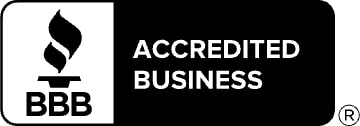
Bringing a new baby into your life is an exciting and joyful time. Along with all the cuddles and sleepless nights, there’s one more important thing to think about: your estate plan.
While it might not be as fun as decorating the nursery, updating your estate plan after having a child is one of the most important ways you can protect your growing family. Here’s what every North Carolina parent should consider.
Create or Update Your Will
Your will is the foundation of your estate plan. If you already have one, now is the time to review and update it. If you don’t, it’s important to create one as soon as possible. The most critical decision you’ll make in your will is naming a guardian for your child in case something happens to you and your child’s other parent.
You can also name an alternate guardian just in case your first choice is unable or unwilling to serve. Without this, the court will decide who raises your child, and it might not be who you would have chosen. You’ll also want to name an executor, the person who will make sure your wishes are carried out.
Consider Setting Up a Trust for Your Child
Children under 18 can’t legally manage inherited money or property. If you leave assets directly to your child, the court may appoint someone to manage the money until they turn 18. At that age, they get full access, whether they’re ready or not.
A better solution for many parents is to set up a trust. A trust lets you choose a trusted adult, called a trustee, to manage your child’s inheritance until they are old enough to handle it responsibly. You can set rules about how the money is used—for example, for education, healthcare, or major life events. Trusts can also help avoid probate, protect your child’s inheritance from creditors, and give you more control over how and when money is distributed.
Update Beneficiary Designations
Some of your most valuable assets like life insurance policies, retirement accounts, and certain bank accounts, aren’t controlled by your will. Instead, they pass directly to the people listed as beneficiaries.
After having a child, take time to review and update your beneficiary designations. It’s important not to name your child directly as a beneficiary. Since minors can’t legally receive these assets, the court may get involved. A smarter approach is to name your trust as the beneficiary so that the money is managed the way you intended.
Also consider updating other financial accounts to make sure they match your wishes. This might include setting up “payable-on-death” (POD) or “transfer-on-death” (TOD) instructions.
Review Your Life Insurance Needs
Raising a child can be expensive. From diapers to college tuition, the financial needs of a growing family add up fast. That’s why it’s a good time to look at your life insurance coverage.
If something happened to you, would there be enough money to cover daily expenses, future education costs, or your mortgage? Many new parents buy term life insurance because it offers high coverage at a lower cost during the years your child is most dependent.
Put Incapacity Planning in Place
Estate planning isn’t just about what happens after you pass away—it’s also about what happens if you become seriously ill or injured. If you were unable to make decisions, who would take care of your finances or make medical choices for you?
This is why you need a durable power of attorney, which gives someone you trust the legal right to manage your money and property. You should also have a healthcare power of attorney and advance directive to spell out your medical wishes. These documents give your family the legal tools they need to act quickly and confidently if something happens.
Think About Temporary Guardianship
While naming a long-term guardian in your will is key, it’s also smart to plan for short-term emergencies. A temporary guardianship form allows someone you trust (like a grandparent or close friend) to make decisions for your child if you’re away or can’t be reached.
For example, if you and your spouse are in a car accident or out of town, this document gives the temporary guardian legal authority to care for your child. It’s a simple step that can bring great peace of mind.
Tell Key People About Your Plan and Store It Safely
Creating an estate plan is only helpful if the right people know about it. Be sure to tell your guardians, trustees, and anyone you’ve named in a power of attorney about their roles. It’s also important to let them know where to find the documents if needed.
Store original copies in a safe place, like a fireproof safe or a safe deposit box. Consider giving copies to your attorney or a trusted family member as a backup.
Review Your Plan Regularly
Your life will continue to change, and your estate plan should keep up. A good rule of thumb is to review your plan every few years or after any major life event like a new baby, divorce, move, or major purchase.
Outdated documents can cause confusion or even lead to court disputes. Regular reviews help ensure that your plan always reflects your current wishes and protects the people who matter most.
Prepare Your Family for the Future with Charlotte Estate Planning
Updating your estate plan after having a baby might not be the first thing on your to-do list, but it’s one of the most important. From naming a guardian to setting up a trust and updating your life insurance, these steps help ensure your child is protected no matter what the future brings.
If you’re ready to get started or need help reviewing your current plan, we’re here for you. Contact Charlotte Estate Planning today to schedule a consultation.
View All Blogs







